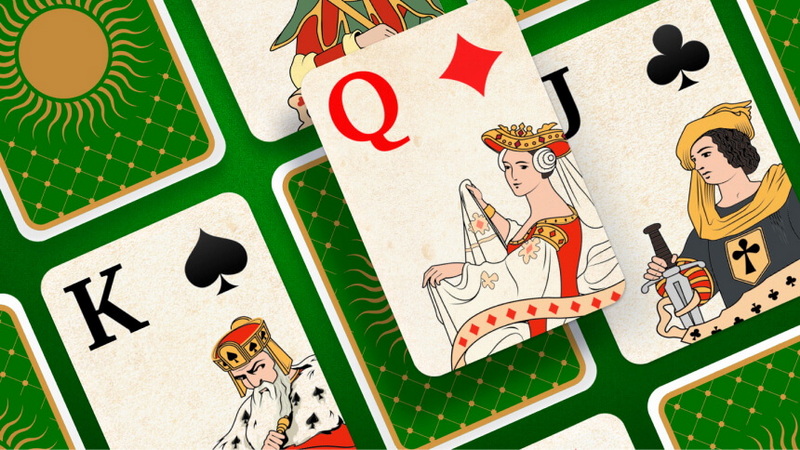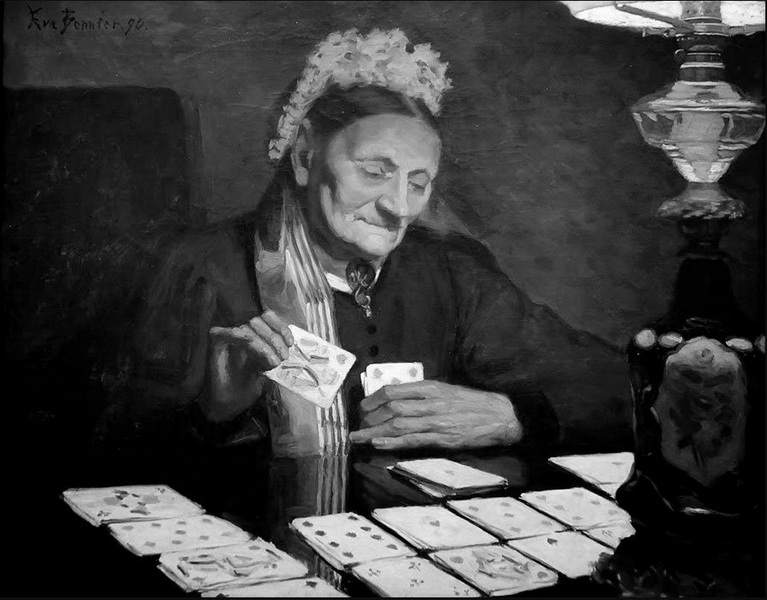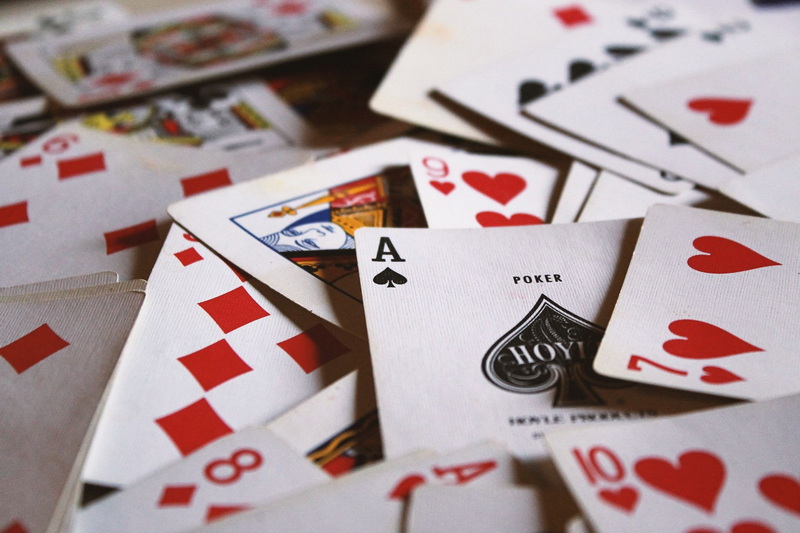Content Menu
● Unraveling the Mystery: The Invention of Solitaire
>> Possible Origins and Influences
>> The French Connection
● From France to the World: The Spread of Solitaire
>> The British Embrace
>> Continental Europe and Scandinavia
>> The American Expansion
● The Digital Revolution: Solitaire Enters the Computer Age
>> Accessibility and Convenience
>> The Addictive Appeal
>> New Variations and Online Platforms
● Solitaire Today: A Timeless Classic
>> Enduring Appeal
>> A Game for Everyone
>> A Cultural Icon
● Conclusion
● FAQ
>> 1. When was Solitaire invented?
>> 2. Who invented Solitaire?
>> 3. Why is Solitaire called "Patience" in Europe?
>> 4. When did Solitaire become a computer game?
>> 5. What is Klondike Solitaire?
● Citations:
Solitaire, a card game cherished by millions worldwide, boasts a captivating history that has spanned across centuries. From its obscure beginnings to its modern-day digital adaptations, Solitaire has undergone a remarkable transformation, enthralling players with its solitary yet strategic gameplay[1]. This article delves into the multifaceted history of Solitaire, exploring its possible origins, its spread across different cultures, and its evolution into the digital age.

Unraveling the Mystery: The Invention of Solitaire
Pinpointing the precise moment and individual responsible for the invention of Solitaire remains an enigma. The lack of definitive historical records has fueled numerous theories and speculations, adding to the game's mystique[1]. Nevertheless, available evidence suggests that Solitaire emerged in the 18th century, gaining traction during the reign of Louis XV in France[1].
Possible Origins and Influences
Several theories attempt to explain the genesis of Solitaire, often linking it to existing card games and cultural practices. Some historians believe that Solitaire may have evolved from earlier fortune-telling games, where cards were used to predict the future[4]. The solitary nature of Solitaire aligns with the introspective aspect of divination, suggesting a possible connection between the two.
Another theory posits that Solitaire originated as a practice tool for competitive card games[2]. Players may have used Solitaire to hone their skills, strategize, and familiarize themselves with different card combinations. Over time, this practice evolved into a standalone game, enjoyed for its own merits.
The French Connection
France emerges as a prominent contender in the narrative of Solitaire's origins. The game gained significant popularity among the French nobility during the 18th century, becoming a favored pastime in aristocratic circles[1]. It is conceivable that a French nobleman, seeking amusement during moments of solitude, devised the game, inadvertently laying the foundation for a global phenomenon[1].
The French term "Solitaire," meaning solitary or alone, further reinforces the game's association with France[7]. This linguistic connection suggests that the game's name originated in France, reflecting its solitary nature and its appeal to individuals seeking solitary entertainment[7].
From France to the World: The Spread of Solitaire
As Solitaire gained popularity in France, it gradually spread to other parts of Europe and beyond. The game's unique blend of skill, strategy, and chance resonated with players from diverse backgrounds, contributing to its widespread adoption[1].
The British Embrace
In the early 19th century, Solitaire found its way to Great Britain, where it was embraced and further developed[1]. The British added their own variations to the game, enriching its complexity and appeal. Lady Adelaide Cadogan's book, "Illustrated Games of Patience," published in 1870, played a pivotal role in documenting and popularizing various Solitaire games, including the classic "Klondike Solitaire" variant[1].
Continental Europe and Scandinavia
Solitaire also gained traction in other parts of continental Europe, including Germany and Scandinavia[4]. In Scandinavia, the game was often referred to as "Kabale," a term derived from the word "cabal," meaning secret or mystery[4]. This association with secrecy suggests that Solitaire may have been viewed as a game of hidden meanings and strategic complexities.
The American Expansion
Solitaire made its way to the United States in the 19th century, where it quickly gained popularity. The game's accessibility and engaging gameplay made it a favorite pastime for people of all ages and backgrounds. The Klondike variant, named after the Klondike Gold Rush in Canada, became particularly popular in the United States, solidifying Solitaire's status as a beloved American pastime[5].

The Digital Revolution: Solitaire Enters the Computer Age
The advent of computers and digital gaming marked a turning point in the history of Solitaire. In 1990, Microsoft introduced Solitaire as a pre-installed game on its Windows operating system, exposing the game to a vast global audience[1]. This strategic move catapulted Solitaire into the digital age, transforming it into one of the most recognized and widely played computer games of all time[1].
Accessibility and Convenience
The digital version of Solitaire offered several advantages over its physical counterpart. Players no longer had to shuffle and deal cards manually, saving time and effort. The ability to start a new game with a simple click of a mouse made Solitaire more accessible and convenient than ever before[2].
The Addictive Appeal
The digital format also amplified Solitaire's addictive qualities. The ease of starting a new game, coupled with the game's inherent challenge, made it difficult for players to resist the urge to play "just one more game"[2]. This addictive appeal contributed to Solitaire's enduring popularity and its status as a time-killing staple for computer users worldwide.
New Variations and Online Platforms
The digital age also spurred the creation of new Solitaire variations and online platforms. Developers created countless digital versions of Solitaire, each with its own unique rules, themes, and features. Online platforms allowed players to compete against each other, adding a social dimension to the solitary game[1].
Solitaire Today: A Timeless Classic
Despite the proliferation of new digital games, Solitaire continues to maintain its popularity, captivating players with its timeless appeal[1]. The game's simplicity, strategic depth, and accessibility have made it a classic pastime that transcends generations.
Enduring Appeal
Solitaire's enduring appeal lies in its ability to provide both relaxation and mental stimulation. The game's solitary nature allows players to unwind and escape the stresses of daily life, while its strategic elements challenge their minds and sharpen their problem-solving skills[1].
A Game for Everyone
Solitaire's accessibility makes it a game for everyone, regardless of age, skill level, or background. The game's simple rules are easy to learn, yet its strategic depth provides endless opportunities for improvement. Whether played with physical cards or on a computer screen, Solitaire offers a rewarding and engaging experience for players of all types[1].
A Cultural Icon
Solitaire has transcended its status as a mere card game, becoming a cultural icon that represents leisure, relaxation, and mental stimulation. The game's presence in popular culture, from movies and television shows to books and video games, further solidifies its status as a beloved and enduring pastime.
Conclusion
Solitaire's journey from its obscure origins to its modern-day popularity is a testament to the game's timeless appeal. While the specific inventor may remain unknown, Solitaire has transcended borders and generations, captivating players with its strategic challenges and moments of solitary reflection[1]. Whether played with physical cards or on a computer screen, Solitaire continues to bring joy, relaxation, and entertainment to millions of players worldwide[1]. As you engage in a game of Solitaire, take a moment to appreciate the game's fascinating history and the enduring legacy it has created.

FAQ
1. When was Solitaire invented?
The exact year of Solitaire's invention remains uncertain. However, it gained prominence in the 18th century during the reign of Louis XV in France[1].
2. Who invented Solitaire?
While the specific individual responsible for inventing Solitaire remains unknown, it is widely believed that the French nobility played a significant role in its creation[1].
3. Why is Solitaire called "Patience" in Europe?
With the exception of the US and Canada, the game is known worldwide as Patience, with the name deriving from the French word with the same spelling and meaning. The reason is quite simple: these types of card games were regarded as an exercise of patience[7].
4. When did Solitaire become a computer game?
In 1990, Microsoft introduced Solitaire as a pre-installed game on its Windows operating system, exposing the game to a vast global audience[1].
5. What is Klondike Solitaire?
The Klondike version of the game likely had many predecessors, but the name originates from Canada during the Klondike Gold Rush. Another name for this version is Canfield, popularized in the United States in the 20th century as one of the most difficult patience games to win[5].
Citations:
[1] https://solitaire.net/articles/solitaire-history
[2] https://justsolitaire.com/history.html
[3] https://huggingface.co/openbmb/VisCPM-Chat/raw/main/vocab.txt
[4] https://solitaire.com/blog/history-of-solitaire/
[5] https://www.247solitaire.com/news/history-of-solitaire/
[6] https://www.solitaireparadise.com/history.html
[7] https://www.solitaire365.com/tips/history-solitaire-games
[8] https://www.solitaire-palace.com/the-history-of-solitaire/































